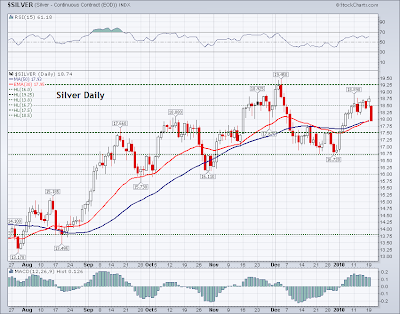I had a friend from the old neighborhood who was Comptroller of a major casino in Las Vegas in 1970-80s, where I also was married in 1981. Only lasting win from there, ever.
According to this dour son of Italy the way he could spot a problem, besides the more aggressive methods of observation and detection, would be to examine the returns on a table basis. In the short run they will vary, but in the longer term each game will provide a statistical return that rarely deviates from the forecast, unless someone is cheating. We would walk through the casino, and he would point to a table game and say "at the end of the month, this table will bring in xx percent."
It was he who introduced me to Bill Friedman's book, Casino Management, which is a useful read if you wish to learn more about that end of the speculative business from the house perspective.
Attached is some information from a reader. I cannot assess its validity, not being in the bond trading business. But it does sound like someone has tapped into the Fed's buying plans to monetize the public debt and is front running those buys, essentially 'stealing' money from the public. Its what they call 'a sure thing.'
To try and figure out who might be doing it, I would look for some big player who is showing extraordinary returns on their trading, with consistent profit that is not statistically 'normal,' too consistently good. The problem with cheaters is that they sometimes get greedy and call attention to themselves.
In Las Vegas the bigger cheats were often taken out into the desert for further inquiry and final disposition. On Wall Street they are somewhat more arrogant and persistent, defying resolution with that ultimate defiance, "We'll just find other ways to cheat again."
Time for a trip to the desert?
Here are a reader's observations from the bond market.
From a reader:Corruption is inevitable when the government is engaged in manipulating the markets with public monies. That portion of the Fed's activities needs to be scrutinized by the GAO on a continual basis. And the activities of the Exchange Stabilization Fund and the Treasury in market intervention should be subject to review by the legislative branch on behalf of the people.
I used to work for a BB on a prop desk until the financial crisis took hold and they fired the less senior guys on the desk. I now trade US Treasuries, for a small prop firm in xxxxx, to scalp basis trades in mostly on the run securities. Occasionally, I will also take position in the repo markets for off the runs if I see something "mispriced." Your recent article piqued my interest because we too have noticed "shenanigans," of sort, in the QE program of USTs.
What we noticed, especially in smaller issues like the 7 Year Cash is that before a Fed buy back would be announced the price would pop significantly as buyers would run through all the offers on two major electronic exchanges (BGC Espeed and ICAP BrokerTec). This occurred more than several times as the 7 Year Cash would be overvalued both by its BNOC by 20-30 ticks and its relative value to similar off the runs. This buyer(s) would lift every offer they could, driving the price substantially above its "value" for sometimes a week at a time. After this buying would occur, the Fed would then announce the purchase of that security sometimes a handle above its approximate value. This "luck" did not just occur in the on the run 7 Year sector, it also occurred in the 30 Year Cash, 3 Year Cash, and more than several off the runs. Again, it was especially prevalent in the less liquid treasury products. Often the "appetite" for these securities would begin approximately 2 weeks to 1 week before the official Fed announcement. The buying was well organized and done in such a way as to completely knock it off kilter from its relationship with like cash Treasuries and the CME Ten Year Contract. If you examine the charts of some of the selected buy backs before the official announcement, you will see a similar occurrence.
While I have not broken this down into a paper to prove it (and I see nothing positive coming out of contacting the ESS-EEE-SEE about this issue), I can assure you that it was occurring on a consistent basis across the entire curve.
A certain issuance would be bid up through the market (substantially above value, as derived by several metrics) only to be later gobbled up by the Fed at the unreasonable price. These player(s) had substantial pockets as we, the small guys (but with a decent capital base), would take the other side of what seemed to be an obvious fade. While this did not occur in every single issuance of the QE program, it occurred often enough to be obvious to any learned observer.
While I am not sure if this can be attributed to purposeful Fed policy or someone at the Fed talking to his pals, I am certain it transpired."
Of course another option is to keep the Fed and the Treasury out of the public markets altogether excepting short term interest rates and specifically identified emergencies.

























































